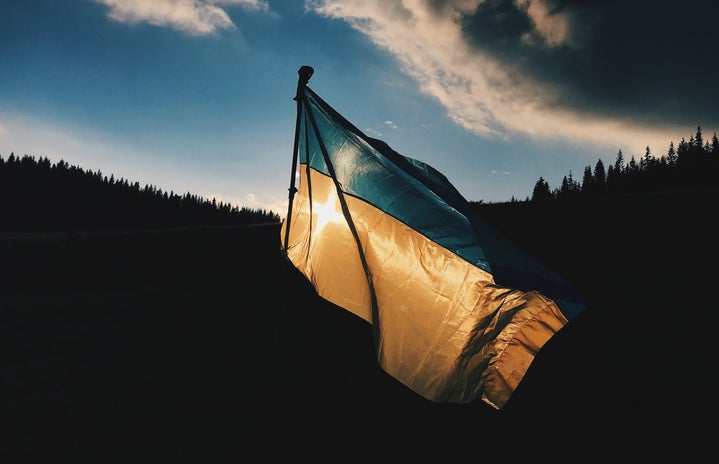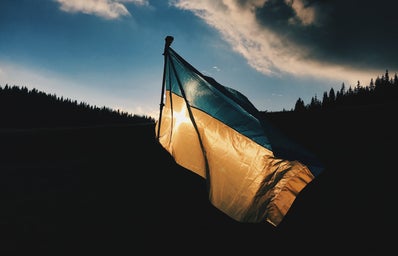In the early hours of the morning of Thursday, Feb. 24, the anticipated event of Russia’s invasion of Ukraine took place. It started at around 6 a.m. Moscow time, with an intrusion into the northern region, where Ukraine’s capital Kyiv is located.
Border officials of Ukraine rang the bell that the Russian militia had intercepted the regions of Kyiv and Zhytomyr through the north of the country, which borders Belarus, a Russian ally. Russian President Vladimir Putin declared this a “special military operations” time during which he also urged Ukrainian forces to bring down their arms in a televised message. The Russian army continued to send missiles to major cities of the country which caused terror amongst the population.
Many Ukrainians are attempting to find any refuge they can within their reach, some within their own cities, by going to areas untouched by the Russians, and others by simply emigrating to nearby nations. Others are choosing to find a safe alternative for their spouses and weaker members of the family while staying on the ground to fight for their nation’s sovereign rights, as urged by Ukrainian President Volodymyr Zelenskyy.
As of now, Russian forces have also captured important places, such as the nuclear plant of Chernobyl. Famous for the 1986 nuclear disaster, Chernobyl is not as useful as it once was; however, it’s speculated that this is for geopolitical purposes, given the proximity between it and the Belarusian border, which may have facilitated Russia’s entry into Ukraine. This also allows easier access for Russia to surround the capital of Kyiv, which would be a vital step in taking the entire country.
The current chaos is incentivizing another country to interfere with its weaker neighbor, which is China with Taiwan. Other world leaders in alignment with their nations and their interests are divided as to what to do. Most don’t want to go to war because of the consequences that this presents, so the dilemma lies in whether to help Ukraine and go to war or stand by and allow Russia, and in turn possibly China as well, to do as they please for fear of their repercussions.
President Putin has declared that if anybody is to interfere with his operations it will lead to “consequences [the world] has never seen,” implying that this could possibly lead to a nuclear war, the world’s greatest fear. President Joe Biden has declared sanctions on Russia by the United States, including blocking Russian banks, on individuals within Putin’s sphere of influence and certain corporations, as well as limits on military operations and a block on U.S. high tech goods. These sanctions are without concrete unilateral international cooperation as of now. It is not clear where these remarks and threats will take Ukraine and the world yet, however, through diplomatic action it is likely to see a de-escalation of the conflict.
Ukraine as a nation has had many historical ties to Russia dating back until the collapse of the Soviet Union, since then, it has been an independent nation. Still, it has faced Russian threats most prominently since 2013’s invasion of the Crimean peninsula until now. This is a developing story.
Want to see more HCFSU? Be sure to like us on Facebook and follow us on Instagram, Twitter, TikTok, YouTube and Pinterest!


